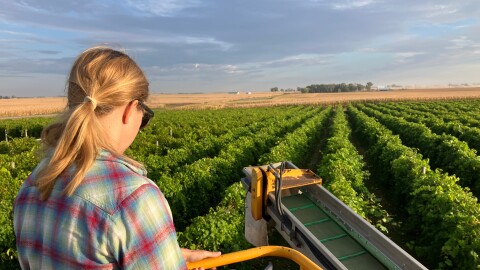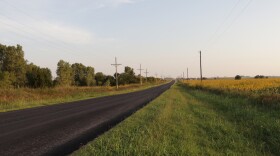-
Farmers rely on the Mississippi River to ship grain and bring them imported fertilizer and other critical inputs. But another year of low river levels means barge travel will be more expensive.
-
The American Heartland has experienced a boom in wineries over the last three decades. But with U.S. wine sales trending down since 2019, some producers are feeling the effects more than others.
-
Quick-growing blooms of bacteria and algae have long been a hazard in lakes and rivers, because of the toxins they produce. Fueled in part by agricultural runoff, these blooms are also threatening public water systems, making water temporarily unusable, and forcing some cities and towns to take costly preventive measures.
-
A plan to disperse Washington-based USDA jobs to five hubs, including Kansas City and Indianapolis, is making waves across agriculture. Critics say the shakeup could hobble the agency, while proponents say it will move staff closer to farmers and save money.
-
Settlement payments from chemical companies are helping cities pay for expensive PFAS removal technology. But local leaders say the dollars often fall short of covering the full costs to clean up drinking water.
-
Beef prices have hit record highs, yet American consumers haven’t stopped buying it. A look at what’s behind the steep price increase and when they might come down.
-
Weeds are a challenge for every farmer. The annual Midwest Mechanical Weed Control Field Day showcases solutions beyond herbicides.
-
Several planned projects would have brought solar to communities in the Midwest and Great Plains for the first time. Others would have expanded existing efforts. Now, the projects are on hold after the Environmental Protection Agency abruptly terminated $7 billion in funding.
-
State fairs are a big draw this time of year for millions of visitors. Whether it's getting a chance to pet a newborn calf, take a ride in a giant plastic ball or eat any number of fried foods, going to the fair is always an experience.
-
Americans are losing their starry views to light pollution. But some communities are make lighting decisions to help preserve night skies – while benefiting wildlife and human health.
-
Years of drought conditions in the Midwest and Great Plains have opened the door for pests and diseases that are killing trees. Now people working in parks and forests are planting new species they hope can survive the changing conditions.
-
The interest in local food systems, like farmer’s markets and direct farm-to-consumer sales, is on the rise. But the U.S. is still more reliant on imported foods than ever before.

















